SUMMARY
This is AI generated summarization, which may have errors. For context, always refer to the full article.
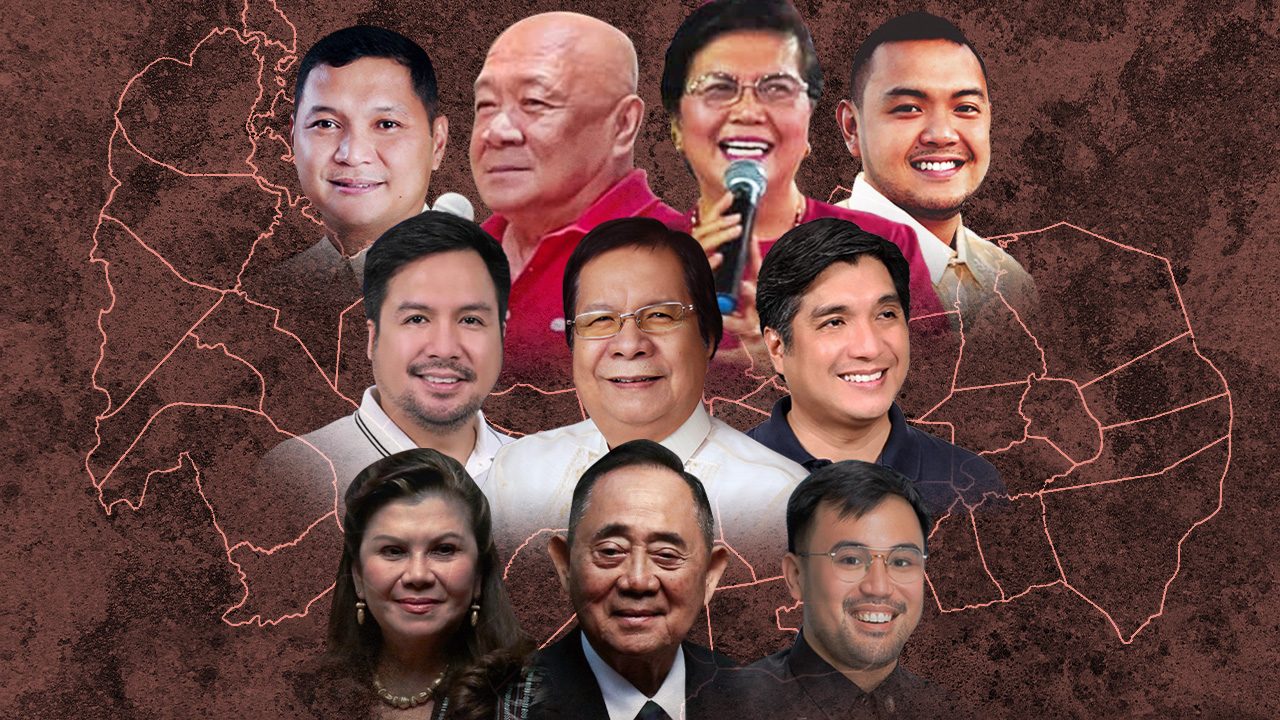
Editor’s Note: Political dynasties currently occupy 29% of local posts, up from only 19% in 1988. They hold 80% of the country’s gubernatorial posts, compared to only 57% in 2004. In Congress, they now control about 67% of seats from 48% in 2004.
This means that most of our provinces are governed by leaders who come from families or clans that have dominated local politics for years, and the country’s laws, which citizens are subjected to, are mostly crafted by them.
In this series on political dynasties in 2022, Rappler takes a close look at the persons and families who wield tremendous power and continue to have a firm grip on their respective localities. Their brand of politics and exercise of their political clout influence not only the outcome of local elections but also the choice of our national leaders.
DAGUPAN CITY, Pangasinan – Former Speaker Jose de Venecia’s family has stepped out in public as “kakampinks” (supporters of presidential candidate and Vice President Leni Robredo), but the waiting game for the Espino political dynasty is a testament to the clout it wields in this vote-rich province.
More than 3.1 million people live in Pangasinan, a 5,369-square-kilometer expanse in the Ilocos Region. Of this population, the province (including independent capital Dagupan) has almost 2.1 million voters, coming in third after Cebu and Cavite.
Pangasinan is a potpourri of culture and languages. Since its founding 442 years ago, the provincial borders have been drawn and redrawn, its districts gerrymandered to its present six as people of different ethnicities migrated and settled along its lush, river-fed plains and 285-kilometer coast.
All eyes here are on the Espino political clan in the hotly-contested 2022 presidential race between Robredo and rival Ferdinand Marcos Jr., the son of the former dictator who hailed from Ilocos Norte.
De Venecia, an unflappable master of coalition-building, is a big win for Robredo, who did not even get a third of Marcos’ votes (265,016 vs 832,711) in Pangasinan during the 2016 vice presidential race.
But the Espinos, led by reelectionist Governor Amado “Pogi” I. Espino III, are still considered key to the on-ground hustling that often dictates a political race’s outcome.
The power of local politicians’ endorsements during national elections couldn’t be clearer than when tarps of varied hues sprouted across the province in April showing the governor’s beaming face beside the top five 2022 presidential bets. (READ: Pangasinan governor shows up on tarps endorsing ‘top five’ presidential bets)
An Espino endorsement for the Vice President could shatter Marcos’ “Solid North” stronghold that has already been showing cracks from the Ilocos provinces to the highlands of the Cordilleras.
Robredo’s supporters are optimistic over the results of Pulse Asia’s March 2022 survey, which showed Marcos dropping by 4 percentage points and the Vice President rising by 14 percentage points in Balance Luzon, which includes key battlegrounds like Pangasinan.
Robredo gathered a crowd of 76,000 in this city during her April 8 grand rally.
Among the highlights of the night was the endorsement from the De Venecias: former Speaker Joe, his wife and former 4th District Representative Gina, and incumbent reelectionist legislator Christopher “Toff” de Venecia, their son, who succeeded his mother in 2016.
Joe is one of the most successful politicians, having served four times as Speaker.
But he is even more famous for being the fulcrum that held coalitions stable for former presidents Fidel V. Ramos, also of Pangasinan, and Gloria Macapagal-Arroyo, ousted president Joseph Estrada’s successor, whose government faced numerous corruption scandals and criticism for widespread human rights abuses.
Fierce rivalries
Due to its large land area and dense population, the province is beyond the control of any one political dynasty. Instead, families tend to carve out their turf in districts. The biggest, baddest clans then get to control the provincial capital.
The Commission on Elections has categorized seven towns as “Orange,” denoting current and recorded “intense political rivalries.”
The ruling Espino dynasty is no stranger to violent attacks or accusations of instigating the same.

On September 11, 2019, armed men ambushed the convoy of Espino patriarch, former congressman and governor Amado Jr. – also called “Ama” or father.
Ama’s security aide and driver died but he survived and recovered.
The violence hounding local politics intensified under President Rodrigo Duterte, who has used his so-called “war on drugs” to bludgeon local officials into submission.
On Christmas Eve of 2018, families of five slain Pangasinan local officials wrote an open letter to Duterte, appealing for help in bringing the killers to justice.
By the time they sent their letter, Rappler had tallied at least seven vice mayors and 12 mayors slain nationwide under Duterte’s watch, some after he publicly named them.
Duterte apologized to Ama, then Pangasinan 5th District representative, after naming him in 2016 in a drug matrix of those allegedly linked to the drug trade in the New Bilibid Prison and Senator Leila de Lima.
The senator has spent five years in jail for what her supporters call trumped-up charges. But on April 28, detained drug suspect Kevin Espinosa retracted his accusations and cleared the former justice secretary of any association with the prison drug network, saying he was “coerced, pressured, intimidated and seriously threatened” to make his past statements.
The Armed Forces of the Philippines (AFP) declared Pangasinan insurgency-free in 2018 and reiterated the status in November 2020, even as it reported the capture of a New People’s Army camp in Mangatarem town.
In 2019, Pangasinan entered the ranks of the country’s “least poor” provinces based on the Philippine Statistics Authority (PSA) 2018 first semester data, with poverty incidence dropping from 23.0% in 2015 to 10.5% in 2018.
But two years of the COVID-19 pandemic almost paralyzed the economy and the PSA’s
1st semester 2021 showed Pangasinan with the highest poverty incidence in the Ilocos Region at 23.6%, “higher than its level of 14.4 percent in the 1st semester 2018.”
From cop to kingpin
Governor Espino faces three challengers as he seeks a third term of office.
Pangasinan 5th District Representative Ramon Guico III also sports a nickname proclaiming male pulchritude. Supporters now call him “Gwapo” to Espino’s “Pogi”. He is also the son and namesake of a politician, Binalonan Mayor Ramon Guico Jr.
The 46-year-old Guico’s bid for the province’s top executive post follows his upset of Ama in the 2019 5th District congressional race.
Instead of running for reelection, Gwapo is going after Pogi’s post while his father runs for his congressional seat. Brother Ramon IV aims to replace their father as Binalonan mayor, a post Gwapo also held for nine years.
Governor Espino’s other challengers are independent candidate Rolando Jimenez and Carlos Padilla of the Philippine Green Republican Party.
The Espinos’ rise to power began when Amado Jr., a 1972 graduate of the Philippine Military Academy and former police chief of the Ilocos Region, won as representative of the 2nd District of Pangasinan in 2001 under Lakas-CMD.
Amado Jr. got reelected in 2004. In the next elections, he targeted the governor’s post, defeating Victor Agbayani, scion of another political clan.
Ama flexed his security credentials during the 2007 campaign, vowing to restore peace and order in the wake of the murders of San Carlos City Mayor Julian Resuello and San Manuel Vice Mayor Bonie Apilado. He also pledged to put an end to cattle rustling in central Pangasinan.
Families come, families go
The Agbayanis were once regarded as Pangasinan’s most eminent political family.
By the time of Victor’s defeat, the clan had ruled for four decades, all the way back to Aguedo, 1st District representative from 1957 to 1969 and then governor from 1971 to 1986.
Aguedo Agbayani made a comeback in 1992 but gave way to son Victor, who was then his executive assistant. Victor ran as running mate of gubernatorial bet Oscar Orbos, who won by a landslide.
Aguedo’s other son, Luis, ran and won as the mayor of Sual town.
Victor eventually became governor from 1998 to 2007. While he stayed victorious until his third and final term in 2004, his siblings were not so lucky.
Louis lost to Arthur Celeste in the congressional 1st District fight.
Teresita Viktoria, who aspired to succeed Louie as Sual mayor, was also defeated by John Rodney Arcinue.
Victor’s wife, Dr. Jamie Agbayani, was set to succeed him in 2007. But Ama crushed them, winning in five of the province’s six districts. His running mate, Marlyn Primicias-Agabas, also came from another prominent clan, the Primiciases of Eastern Pangasinan.
Victor attempted another comeback attempt in 2010, but Ama walloped him again, taking 70% of the province’s votes. This marked the end of the Agbayanis’ hold in the province.
Espino concluded his final gubernatorial term in the 2013 elections with another overwhelming victory against then-Alaminos City mayor Hernani Braganza, one of former president Macapagal-Arroyo’s “Spice Boys.”
Braganza’s loss would encourage the Celeste family, allies of Espino, to creep their way up in Pangasinan’s western front.
Mark Cojuangco, Nationalist People’s Coalition (NPC) provincial chairman, backed Espino against Braganza of the Liberal Party.
But in February 2014, Mark, the son of tycoon Danding Cojuangco, announced his bid to run as governor. This irked Ama, who decided to pit Amado III against Mark. He also challenged Kimi, Mark’s wife, for the 5th District congressional seat.
Espino resigned from the NPC and switched to Aksyon Demokratiko for the 2016 elections. His son was the Liberal Party’s gubernatorial debt.
These party labels meant nothing in 2016. All Espino and Cojuangco clan members campaigned and voted for then-vice presidential candidate Marcos Jr.
Still on top

The Espinos knocked out the Cojuango couple.
Former Espino ally Arthur Celeste, 13-year barangay captain, three-term 1st District representative, and two-term mayor of Alaminos City, also failed to take away the gubernatorial post.
But in Eastern Pangasinan, the Guicos took down the Espino patriarch in a tight congressional race, with Gwapo getting 125,136 votes to Ama’s 121,624.
Still, the Espinos won several other posts.
Amado Jr.’s wife Priscilla or “Mely” became Bugallon town’s first-ever female mayor in a four-way battle, which included former ally Rodrigo Orduña.
Another Espino scion, Jumel Anthony, trounced former provincial board member Raul Sison, also an Espino deserter, for the 2nd District congressional seat.
Jumel is up for reelection this year, facing Mark Cojuangco, who has shifted districts.
In Bautista town, Ama’s brother Amadeo and running mate Joseph, a relative, dominated the race. For the 2022 elections, Joseph has set his sights on the mayoralty post.
Another Espino kin, Jerome Vic, is the current Sangguniang Kabataan Provincial Federation president.
Every pinnacle always lures dreamers seeking conquest. In the 2022 elections, clans have joined forces in a bid to bring down the Espinos. (To be concluded) – Rappler.com
Ahikam Pasion is a Luzon-based journalist and an awardee of the Aries Rufo Journalism Fellowship.
Read the other stories in our Political Dynasties 2022 series:
Luzon
- Political Dynasties 2022: Amid controversies, Pinedas of Pampanga expand reach
- Political Dynasties 2022: Pangasinan clans in high stakes 2022 brawl
- Political Dynasties 2022: Fariñas clan foil to Marcos power in Ilocos Norte
- Political Dynasties 2022: Revillas now the largest in Cavite
Visayas
- Political Dynasties 2022: Evardones reach Eastern Samar summit
- Political families crowd Eastern Samar candidates’ list
- Political Dynasties 2022: No heirs for Osmeña, Rama in Cebu City
- Political Dynasties 2022: Garin patriarch of Iloilo hard act to follow
- Political Dynasties 2022: Benitez clan guns for Bacolod City
- Negros Occidental big clans offer ‘soft’ support for Marcos
Mindanao
- Political Dynasties 2022: Zubiris rule Bukidnon after Fortich
- Political Dynasties 2022: Clashing families spring from Dongkoy Emano
- Political Dynasties 2022: Dongkoy Emano morphs into kingpin after EDSA revolt
- Political Dynasties 2022: Two families dominate Zamboanga Sibugay politics
Related content:
Add a comment
How does this make you feel?



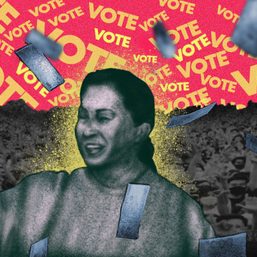

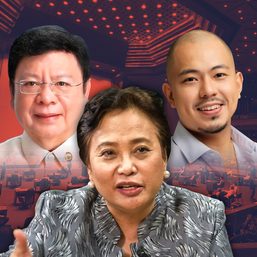
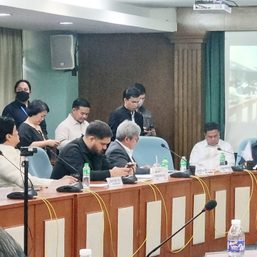
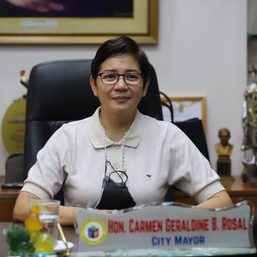





![[New School] Tama na kayo](https://www.rappler.com/tachyon/2024/02/new-school-tama-na-kayo-feb-6-2024.jpg?resize=257%2C257&crop=290px%2C0px%2C720px%2C720px)
![[Only IN Hollywood] After a thousand cuts, and so it begins for Ramona Diaz and Maria Ressa](https://www.rappler.com/tachyon/2024/02/Leni-18.jpg?resize=257%2C257&crop=262px%2C0px%2C720px%2C720px)



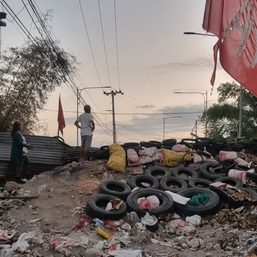

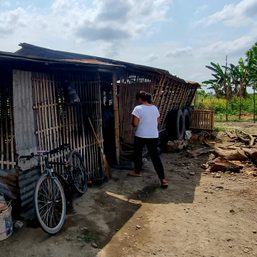

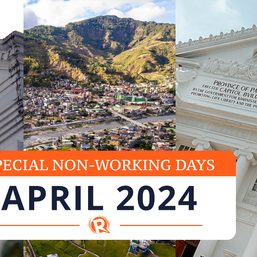
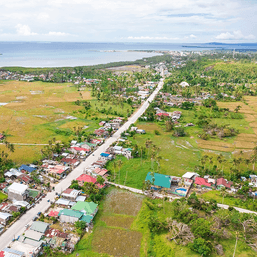

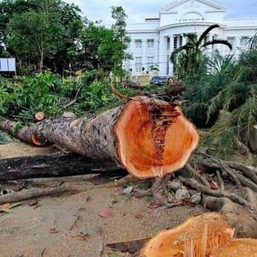
![[Free to disagree] How to be a cult leader or a demagogue president](https://www.rappler.com/tachyon/2024/04/TL-free-to-disagree.jpg?resize=257%2C257&crop_strategy=attention)
![[OPINION] Can Marcos survive a voters’ revolt in 2025?](https://www.rappler.com/tachyon/2024/04/tl-voters-revolt-04042024.jpg?resize=257%2C257&crop=251px%2C0px%2C720px%2C720px)
![[Edgewise] Quo vadis, Quiboloy?](https://www.rappler.com/tachyon/2024/03/quo-vadis-quiboloy-march-21-2024.jpg?resize=257%2C257&crop_strategy=attention)

![[OPINION] Sara Duterte: Will she do a Binay or a Robredo?](https://www.rappler.com/tachyon/2024/03/tl-sara-duterte-will-do-binay-or-robredo-March-15-2024.jpg?resize=257%2C257&crop_strategy=attention)
There are no comments yet. Add your comment to start the conversation.